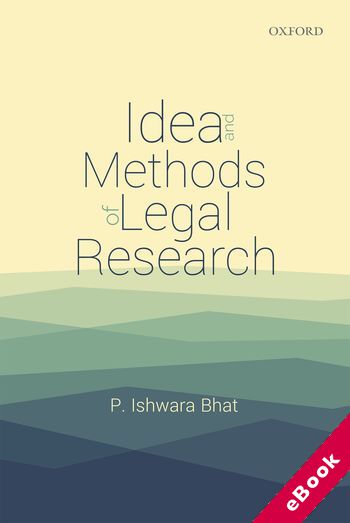
The device(s) you use to access the eBook content must be authorized with an Adobe ID before you download the product otherwise it will fail to register correctly.
For further information see https://www.wildy.com/ebook-formats
Once the order is confirmed an automated e-mail will be sent to you to allow you to download the eBook.
All eBooks are supplied firm sale and cannot be returned. If you believe there is a fault with your eBook then contact us on ebooks@wildy.com and we will help in resolving the issue. This does not affect your statutory rights.
The book unearths the way in which thinking process is to be streamlined in research; the manner in which a theme is to be built, and the paths through which notions of objectivity, feminism, ethics and purposive character of knowledge are to be internalized in legal research. The proposed book has five components. The first part deals with general matters such as meaning, evolution, and scope of legal research; systematization of thinking process ; objectivity and ethics in legal research; and building a theme through an appropriate research plan. The second part engages with various ways through which doctrinal legal research can be conducted. This includes doctrinal, analytical, historical, comparative, and philosophical methods of conducting legal research. Part Three unravels discussion on non-doctrinal legal research by highlighting empirical, qualitative, and quantitative methods of legal research. It also catalogues the tools employed for non-doctrinal legal research and explains the method of using them. Part four takes to the fields where combination of doctrinal and non-doctrinal legal research can be attempted. Multi-method legal research, policy research, action research, and feminist legal research occupy this field. A point emphasized in various chapters is that legal research cannot afford to have compartmentalization of methods, and that the researcher has to be eclectic and inter-disciplinary in his approach. The final part reflects over the steps involved in research-based critical legal writing, as distinct from client-related or norm-creating legal writing.